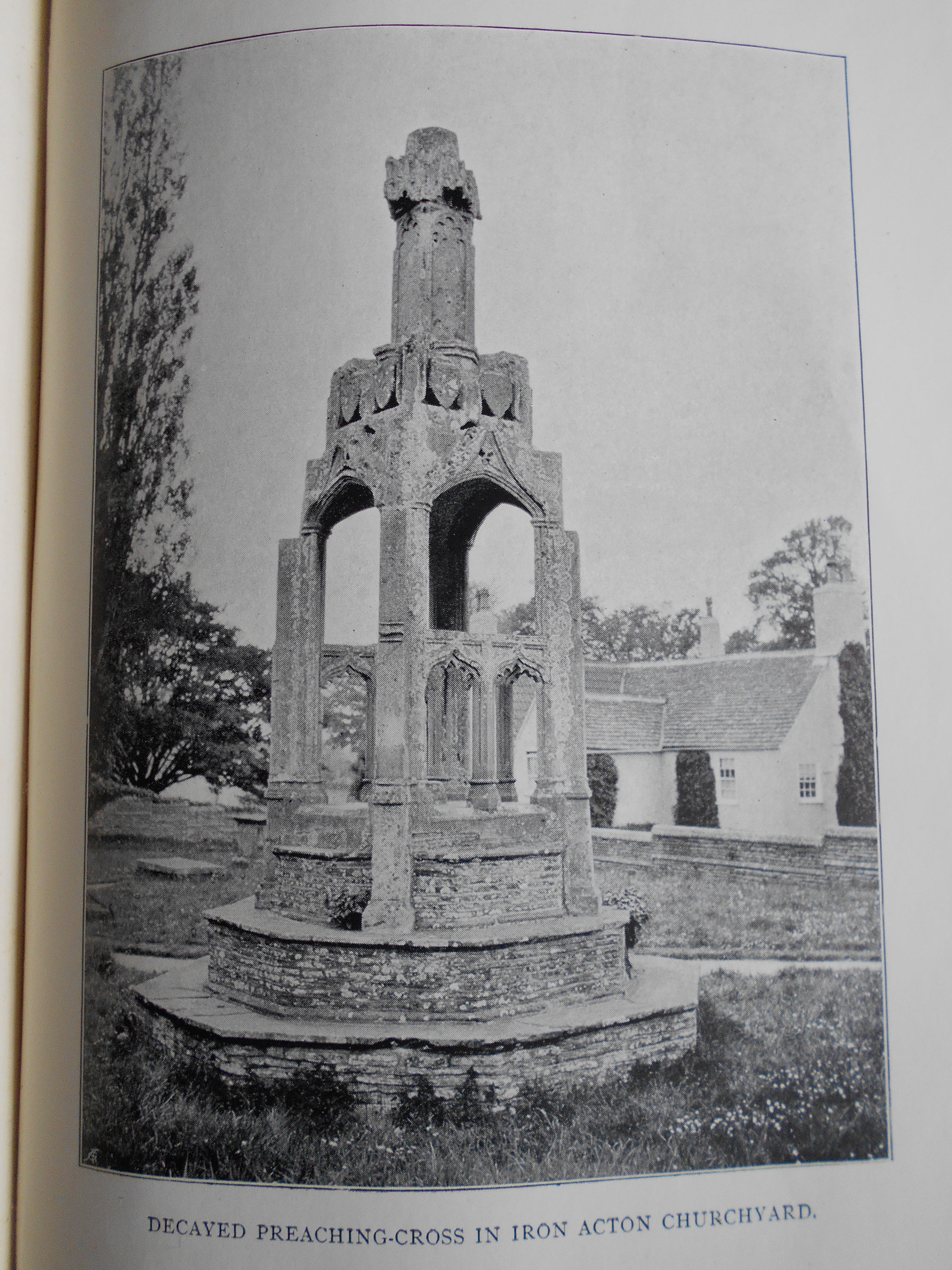 |
 |
One of the places Hissey visited was Iron Acton Church in South
Gloucestershire, England. There he describes a "well preserved preaching cross". He also includes a black and white photograph
and says:
"From
this it will be seen that it has lost its cross on the top, and that much of its carved ornaments are gone" (Hisssey, 321).
He had previously noted that:
"I have only seen such a thing
once before, and that is in the ruins of the Black Friars' monastery in Hereford (Hissey, 321).
| "Decayed Preaching-Cross In Iron Acton Churchyard" |

|
| It has lost its cross and much of its charm. |
A Wikipedia article mentions the preaching cross:
"19th-century engraving of Parish
church of St James the less. The preaching cross, of which then only the base survived, erected by Sir Robert Poyntz, is shown
in the churchyard, centre."
This
same Wikipedia article also shows the coat of arms of the Poyntz family "...shown on a field of oak leaves, a reference to
the etymology of the ancient settlement of Acton ("Oak-town")".
The oak tree was sacred to the Druids, the pre-Christian rivals. It may only be an accidental
gesture, but the charm of the cross has somehow been knocked off the top.
Reprinted editions of The Charm of the Road can be purchased online.
Referring to the 1910 edition, an excerpt is included that explains the secret of Dick Whittington's cat:
"1910 edition. Excerpt: ...in
the middle of the fourteenth century, and was the son of a knight of good property. He went to London not as a poor boy, but
provided with funds, to learn to be a merchant, and his renowned cat was his ship, cat being the name then given to a small
timber craft with which Whittington made his first venture in trading."
Riders to The Sea, Biblical Implications
Wordshed
|



